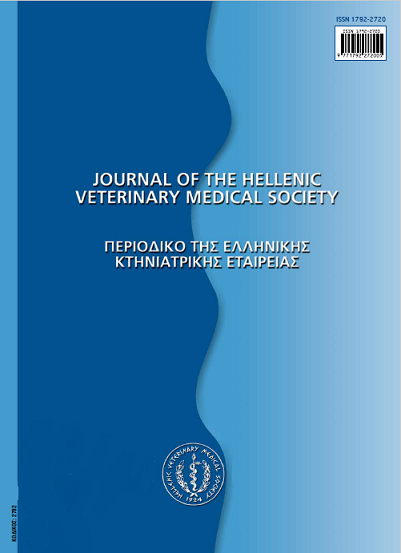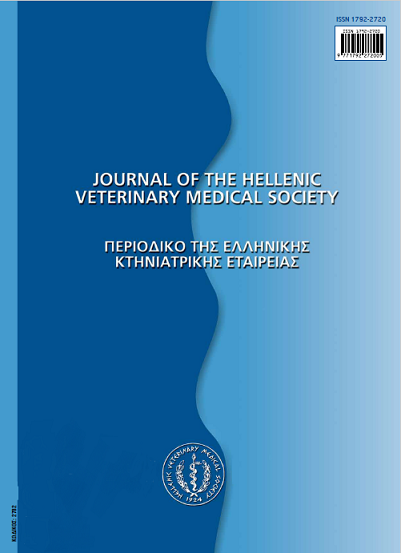Tritrichomonas foetus: a new cause of diarrhea in cats in Greece
Abstract
Over the past few years, the protozoan parasite Tritrichomonas foetus (T foetus) has emerged as a new and important cause of feline diarrhea in the international veterinary community. In a recent study, the presence of T. foetus was confirmed for the first time in cats in Greece. The protozoan parasite Τ foetus has been primarily known as a cause of trichomoniasis in cattle. In this animal species, the parasite affects the reproductive system of both males and females and is associated with infertility and other reproductive problems. It was first described as a cause of feline diarrhea in 2003 in the United States. Since then, feline Τ.foetus -associated diarrhea has been reported in many countries around the world and, recently, it was, also, described in cats in Greece. The trophozoites of the parasite are excreted in the feces and healthy cats are infected with the ingestion of T. foetus trophozoites. Τ foetus affects mainly the colon and the last part of the small intestine. Τ/oeto-associated diarrhea occurs mainly in young cats, but cats of any age can be infected and develop clinical signs. The main clinical sign is diarrhea, which may contain mucus or blood, and it often has spontaneous remissions and exacerbations. General clinical sings such as anorexia, weight loss and fever occur less frequently. If left untreated, the diarrhea often persists for months or years. In some cats, the clinical signs eventually resolve without treatment, but this can take up to 2 years. Moreover, these animals usually remain infected and are a source of infection for other cats (or humans) and often the clinical signs relapse in situations of stress. Feline Τ foetus infection can be diagnosed mainly by: a) microscopic examination of fecal samples, b) fecal culture specific for Τ foetus and c) fecal PCR. None of the above methods is diagnostic in 100% of cases and, therefore, these methods should be used in combination and bearing in mind the disadvantages of each method. Most antiparasitic and antibiotic drugs are not effective in treating diarrhea caused by T. foetus . Transient improvement can be seen with the use of common antibiotics or antiparasitic drugs, but the clinical signs typically recur with discontinuation of treatment. The only drug with proven efficacy against T. foetus in cats is ronidazol, which is usually used at a dose of 30 mg/kg, orally every 24 hours for 14 days. In some cases, the clinical sings recur with discontinuation of treatment but they usually resolve after one additional treatment cycle. The most serious side effect of ronidazole in cats is the development of neurological signs, but those usually resolve with discontinuation of treatment. Finally, T. foetus may be transmitted to humans, although this has not been proven.
Article Details
- Come citare
-
XENOULIS (Π.Γ. ΞΕΝΟΥΛΗΣ) P. G. (2017). Tritrichomonas foetus: a new cause of diarrhea in cats in Greece. Journal of the Hellenic Veterinary Medical Society, 62(2), 132–140. https://doi.org/10.12681/jhvms.14842
- Fascicolo
- V. 62 N. 2 (2011)
- Sezione
- Review Articles
Authors who publish with this journal agree to the following terms:
· Authors retain copyright and grant the journal right of first publication with the work simultaneously licensed under a Creative Commons Attribution Non-Commercial License that allows others to share the work with an acknowledgement of the work's authorship and initial publication in this journal.
· Authors are able to enter into separate, additional contractual arrangements for the non-exclusive distribution of the journal's published version of the work (e.g. post it to an institutional repository or publish it in a book), with an acknowledgement of its initial publication in this journal.
· Authors are permitted and encouraged to post their work online (preferably in institutional repositories or on their website) prior to and during the submission process, as it can lead to productive exchanges, as well as earlier and greater citation of published work.




